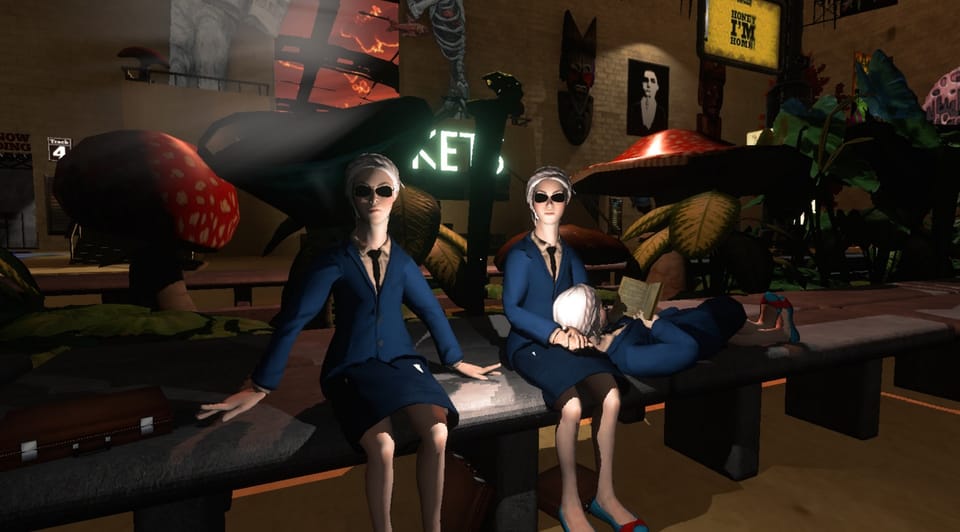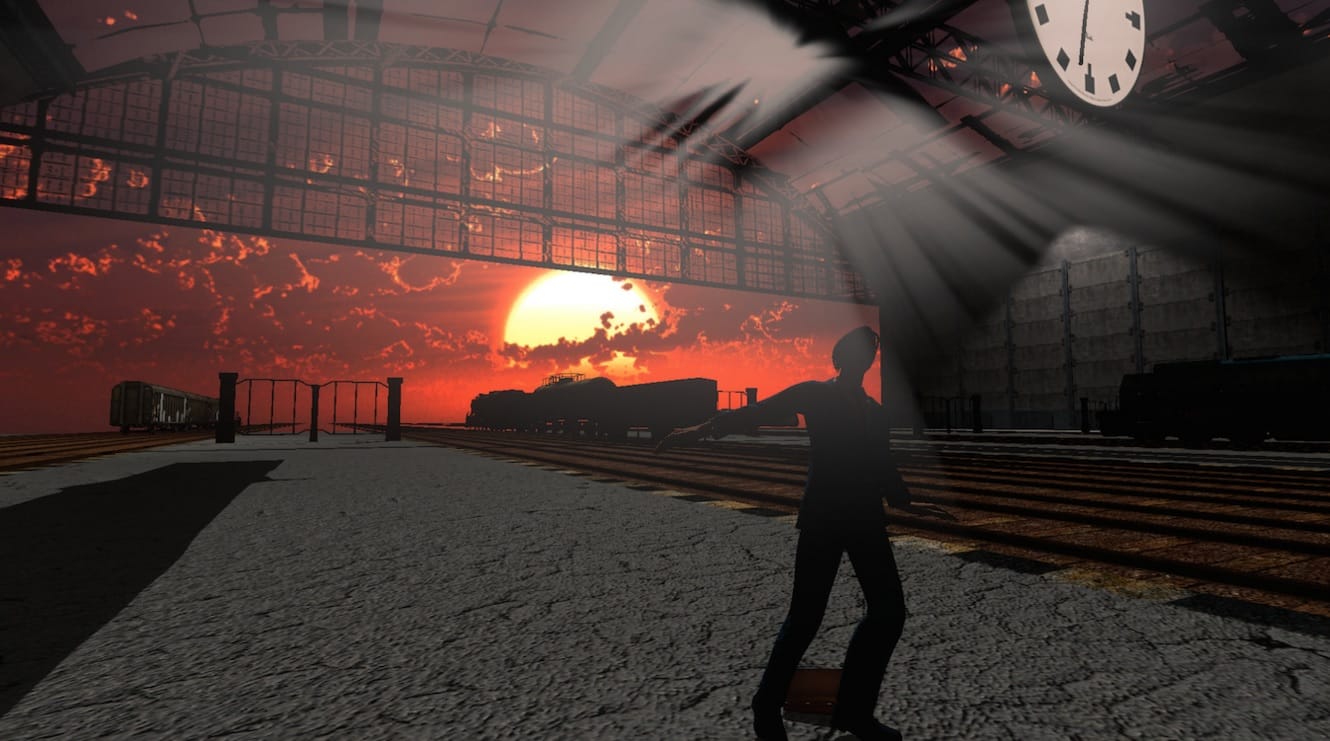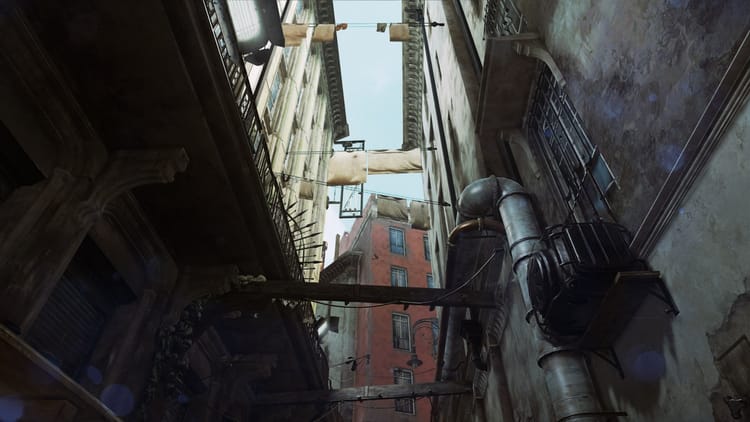Speak Up, Off-Peak

Everybody’s Gone to the Rapture. Mad Max. Fallout 4. Star Wars Battlefront. In a year of stunning videogame landscapes—or at least landscapes that are mildly pleasing, so long as you enjoy dull, pretty pictures—Off-Peak, by Cosmo D, is exceptional. Its train station cum art gallery is an evocation of art versus functionality, of a world and an industry where talented creators are trained to become commodities.
Musicians are gathered here. Artwork and posters adorn the walls. Above you hangs a life size sculpture of a blue whale. Around you, people of all shapes, sizes and skin colours sip coffee and converse. But you, a true free spirit, roaming the station at your pleasure, searching for truth in the form of scattered ticket pieces, are not welcome. The station’s owner is watching you and is displeased. When you reach the upper floor, collect your ticket stub, and turn around, a team of identical, suited, albino spies is glaring directly in your face. This is a place for artwork and expression, but it’s a place, also, for people to clock routinely in and out of work.
this is what I see in videogames, not just this year, but every year.
And just as the images and sounds emanating from the station disguise its industrial purpose, your exploration is either displeasing to the station’s management or, in the case of the albinos, a kind of job interview—they notice in you a kindred spirit, and carry you off to join their collective of ostensible free-thinkers. Expression in Off-Peak is not true. Shady upper forces seek either to curtail or assimilate it. You believe you are finding your own way home, but your search through the station is part of other peoples’ machinations. One way or another, they want you to fall in line.
And this is what I see in videogames, not just this year, but every year. I see genuinely talented people corralled into working on humiliatingly simple games. I see expression and creation discussed in the most menial and reductive terms, with “story” and “characters” treated like components in a machine. I see a functioning system, a pure business, hiding its grey self-perpetuation behind emotional hyperbole and the occasional flicker of artistry, praised and awarded beyond all proportion. Large, industrial, and designed in almost every respect to help maintain routine; videogames are a train station.
And the enthusiast press, self-congratulatory award ceremonies, and blithe videogame positivity, which stems from a few cheaply emotional, poorly written independent hits, are the posters and sculptures adorning it. Genuine artists do exist. Cosmo D is certainly one. Will O’ Neill, Silverstring, and Jallooligans are but a few others. However, Off-Peak warns of a culture—or maybe something broader than that; maybe just a tendency in people, generally—to label and compartmentalize, to “use” artwork in the way one would use an appliance.

One school of game-making treats creation as design, and games as consumer electronics. Another is unthinking and masturbatory, so determined to find worth that it will adore even the limpest work, as long as it has represents vaguely an alternate future. Off-Peak announces our longing for uncontainable expression. Regardless of what you create, it believes there is nobility in pure artistic vision.
You can download Off-Peak over on Game Jolt.



